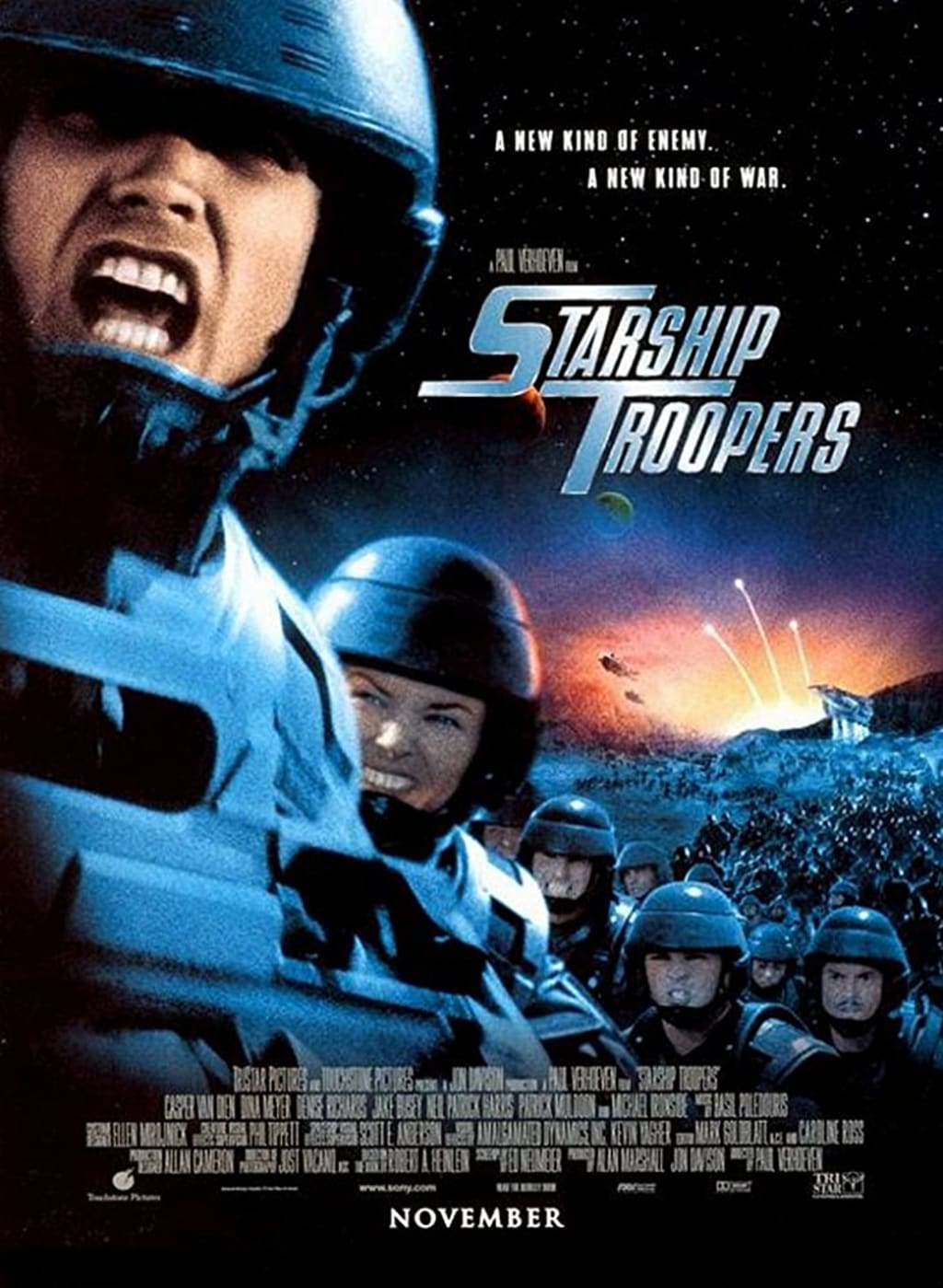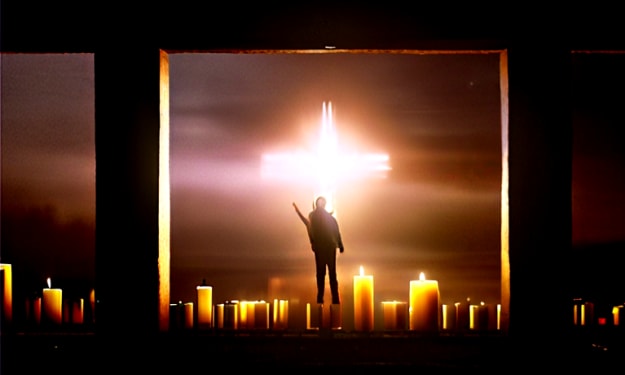'Starship Troopers': The Book and Movie Complement Each Other Perfectly
The book and the movie give us plenty to think about.

Some gage the Paul Verhoeven adaptation of Starship Troopersas a brilliantly couched anti-war, anti-fascist statement, while others see no need to elevate this mindless 1997 B-movie slaughter. I’m with the former. But it’s those that are deeply offended by the political hijacking of Heinlein’s message that has me commenting again. I’ve now read the book and find that the vastly different outlooks complement each other perfectly.
As I turned the pages, I speculated that the film was a critique of Heinlein’s original work. Verhoeven stated as such. “Our philosophy was really different [from Heinlein’s book]. We wanted to do a double story. A really wonderful adventure story about these young boys and girls fighting. But we also wanted to show that these people are really, in their heart, without knowing it, are on their way to fascism,” IndieWire.com reported Verhoeven’s insight.
Heinlein a Fascist?
So an obvious question arises. Was Heinlein advocating an evil, militaristic and fascist society?
Well, in a speech to the naval academy in 1973, he panned the well-known sentiment that patriotism is the last refuge of scoundrel. “What they never mention is that the man who made that sneering remark was a fat, gluttonous slob who was pursued all his life by a pathological fear of death.”
The author went on to say, “patriotism is as necessary a part of man’s evolutionary equipment as are his eyes”…and that, “a man who is NOT patriotic is an evolutionary dead end.”
Yes, I’m more with the gluttonous slob. But does his worldview make Heinlein a fascist loving, super-patriot who blindly follows might?
Plenty to Think About
Numerous commentaries say he’s more complex. So I gave him the benefit of the doubt and gladly celebrate a book that gives us plenty to think about.
At the heart of Starship Troopers is citizenship. The film presents the issue and subtly builds a case against society’s fatal flaw.
The book uses almost the same presentation, but leaves the reader considering whether the franchise should be so free. “We require each person who wishes to exert control over the state to wager his own life — and lose it, if need be — to save the life of the state.”
Service guarantees citizenship and it’s hard not to be persuaded by logic that seeks a more responsible electorate. A vastly uninformed populace and low voter turnout highlights this very flaw in our current state.
But once the gung ho passes, the system doesn’t make for the best representative form of government. Imperfectly, we all descend from our various indoctrinations, but this society stems from only one. Despite the responsibility contained within, it still amounts to one party rule.
America Gone Soft
So was Heinlein really in favor of this type of citizenship? He supposedly wrote Troopers in response to those calling for bans on nuclear testing. Might Heinlein have seen a prosperous America getting soft, and was calling for a more serious individual dedication to freedom. Otherwise, we’d be more susceptible to external threats or possibly succumb internally to the scenario presented in the book.
Either way, without active participation, “moral instinct” suffers on a societal level. The mother cat or soldier subverting personal survival in favor of its young or the nation alludes to the evolutionary dead end decried above.
No matter, Heinlein elevates human nature above patriotism to justify the cause. “Man is what he is, a wild animal with the will to survive and (so far) the ability, against all competition. Unless one accepts that, anything one says about morals, war, politics — you name it — is nonsense. Correct morals arise from knowing that Man is not what do-gooders and well-meaning Aunt Nellies would like him to be.”
Thus Heinlein can justify the story’s conflict. “Either we spread and wipe out the Bugs or they spread and wipe us out.”
Hitler definitely would have approved. On the other hand, you’re not a fascist to lament the truth as Heinlein does.
The important part is to have the discussion and I can understand how the altered message upsets the original diehards. But scoundrels aplenty, the movie message completes the circle, and ultimately has the same affect as the book.
It gives us plenty to think about.
Author can be reached at [email protected]
For more of Rich Monetti’s work like : https://www.facebook.com/My-Movie-Reviews-272401289793471/
About the Creator
Rich Monetti
I am, I write.






Comments
There are no comments for this story
Be the first to respond and start the conversation.